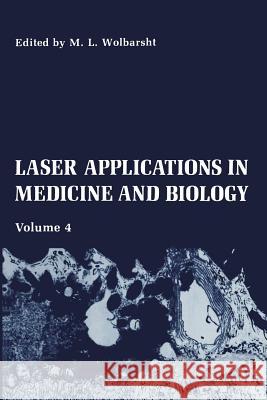Laser Applications in Medicine and Biology: Volume 4 » książka
Laser Applications in Medicine and Biology: Volume 4
ISBN-13: 9781461280613 / Angielski / Miękka / 2011 / 310 str.
The diversity of the chapters presented in this volume illustrates not only the many applications of lasers, but also the fact that, in many cases, these are not new uses of lasers, but rather improvements of laser techniques already widely accepted in both research and clinical situations. Biological reactions to some special aspects of laser exposure continue to show new effects, which have implications for the ever-present topic of laser safety. Such biological reactions are included in fields of research which depend on properties of electromagnetic radiation exposure only possible with lasers, for example, the short pulses necessary for the temperature-jump experiments reviewed by Reiss: Speciality lasers, such as the transverse excitation atmospheric (TEA) or excimer lasers, add new wavelengths and pulse domains to those already available for biological application. A description of these new types of lasers by Osgood is included to indicate new possibilities for future use and to avoid limiting our coverage to well-developed present-day applications. Hillenkamp and Kaufmann describe a microprobe mass spectrograph for analysis of the minute amounts of material evaporated by a laser pulse. The analytical possibilities of this instrument are far-reaching, and some of the various results are described to illustrate the power of their method, as well as to show the types of problems that are suitable for it. The initial steps in photosynthesis have become the subject of intensive investigation.











